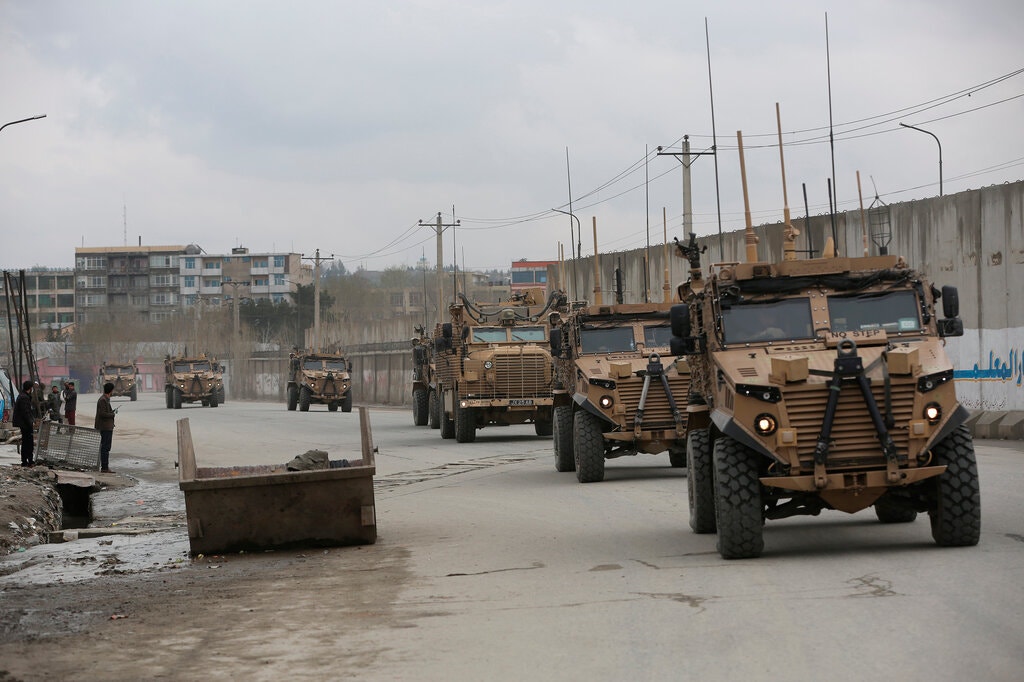Britain will expedite the relocation of Afghan staff, largely interpreters, who worked for the country’s armed forces and are at increasing risk ahead of the withdrawal of U.S. and NATO troops.
LONDON — Britain will expedite the relocation of Afghan staff and their families who worked for the British government in Afghanistan, largely as interpreters, the Ministry of Defense said on Monday, acknowledging they had an obligation to protect local employees from Taliban threats as Western troops withdraw from the country.
“As we withdraw our armed forces, it is only right we accelerate the relocation of those who may be at risk of reprisals,” said Ben Wallace, defense secretary of Britain, in a statement on Monday, adding that the country owed “a debt of gratitude” to local staff employed by British forces.
The announcement comes as human rights advocates, translators and former service members have raised alarms about the rising threat that Afghan civilians who worked with United States and NATO-led forces face from the Taliban since the alliance announced the withdrawal of all troops by Sept. 11.
American military officials have said that the United States and NATO allies could withdraw even earlier, by July, a fast-tracked ending to America’s longest war on foreign soil, leaving Afghan local staff to fear retribution if they remain. Nearly 1,000 British troops are in Afghanistan, according to the British Army website, though local media have put that number closer to 750 troops.
The speedup is part of a new program started in April, which offers current or former staff employed by the British government “assessed to be under serious threat to life” priority relocation to Britain, regardless of their employment status, role or length of time served.
The U.S. government is also grappling with the fate of thousands of Afghans, many of whom served as interpreters, awaiting approval of visa applications that would allow them to move to the United States. Gen. Mark A. Milley, the nation’s top military official, said last week that the Pentagon and State Department were considering the evacuation of interpreters and others who had assisted the American government, though a spokesperson for him later clarified there were no immediate plans to evacuate them.
Afghans who have worked for the British government since 2001 can file an application, which is assessed by a defense team at the British Embassy in Kabul. Those relocated have access to a five-year visa after which they can apply for permanent residency. More than 1,360 former Afghan staff and their families have already been relocated in Britain, and the government has estimated that about 3,000 more people will join them.
The government’s announcement that it was fast-tracking relocations was “old wine in new bottles,” said Dr. Sara de Jong, a political scientist at the University of York and co-founder of The Sulha Alliance, a group campaigning for Afghan interpreters working for Britain’s military, adding that the new policy adopted in April had already promised to bring Afghan interpreters and other staff quickly to Britain.
Allowing people who had worked in exposed roles eligibility by default was an improvement on a previous policy, which she said rejected hundreds of now eligible applicants. As an example, she said one man the alliance had worked with for three years received notice he would be relocated on Sunday, despite being previously rejected.
But, Dr. de Jong said, the April policy excluded staff members who had been fired, a point of concern given that many staffer members had been let go for minor offenses, such as carrying personal electronic devices to update their families or not returning from leave for personal reasons. And the policy change came too late for Afghans who have already fled and now reside, sometimes without documentation, in other countries like India, Serbia and Turkey, she said.
Government sources on Monday confirmed a report in The Daily Mail that said that those who had been dismissed for minor offenses but were otherwise eligible for resettlement would be approved if there were no other reasons for concern — a development that advocates said could have a major impact.
The onus now was on the government, Dr. de Jong said, to reach out to Afghan workers who were previously ineligible and help ensure that they apply for relocation.
“While some of these linguists have found refuge via national programs, countless others have been waiting years in vain for a protective visa,” an international coalition of advocates wrote in an open letter this month to the Jens Stoltenberg, NATO’s secretary general, calling for an urgent relocation of interpreters, many who had already gone into hiding at home or fled abroad, before the full withdrawal. “There is now little time to save them.”
“If they really show a true acceleration and an increased capacity at the unit to deal with all these requests,” said Dr. de Jong, “Then I think the U.K. is making a very positive move.”


